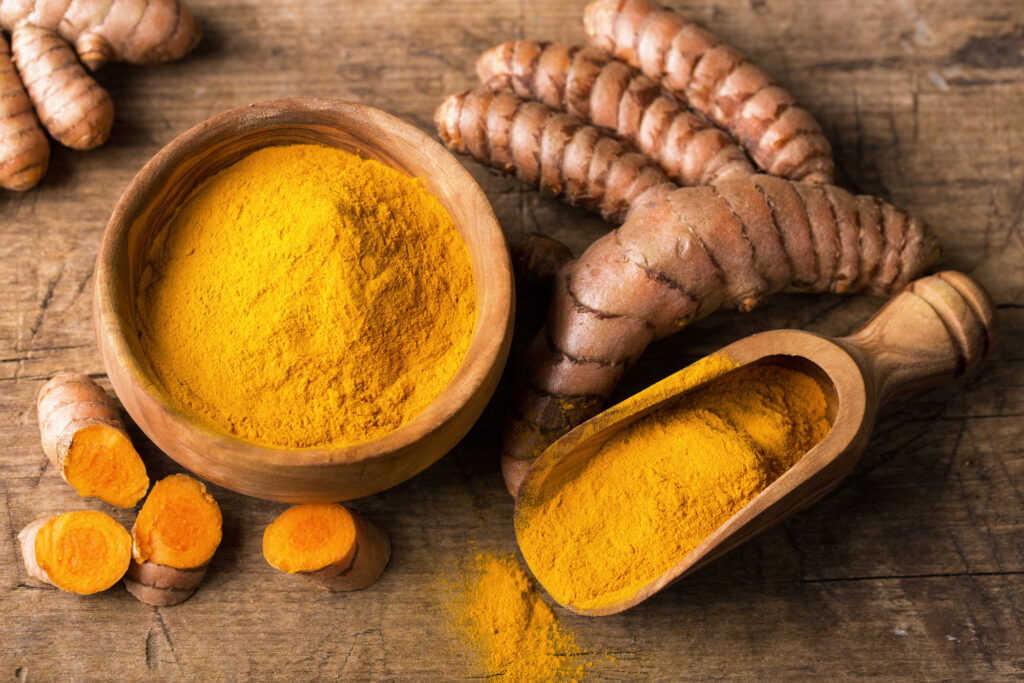Excess weight is rapidly becoming a global epidemic, as experts predict that over half of the world’s population will be obese by the year 2035. While obesity itself is a chronic health condition, it also leads to an increased risk of many more serious concerns, including heart disease, type 2 diabetes, non-alcoholic fatty liver disease (NAFLD), and polycystic ovary syndrome (PCOS). And studies show that the sheer medical costs of obesity in the United States alone total some $260 billion.
Among the many compounds researched for their potential weight-loss benefits, curcumin, the active ingredient in the curry spice turmeric (Curcuma longa), has been one of the most promising—and the most frustrating. While the herbal supplement has shown weight-loss benefits in studies, “the major limitation of its therapeutic efficacy is its low bioavailability owing to poor absorption, fast metabolism, and rapid systemic elimination,” write the authors of a March study published in The American Journal of Clinical Nutrition. Their research review found that curcumin does show significant weight loss benefits, especially newer, more bioavailable formulations of the herb.
The Study
Scientists from Khon Kaen Hospital and Mahidol University in Thailand performed a systematic search of databases, including Cochrane Central, PubMed Medline, and Elsevier Scopus, to identify relevant research reviews published prior to March 31, 2022, and relevant individual studies published since then. To qualify, the studies had to meet three criteria: they were randomized, controlled trials; they compared curcumin supplementation with usual or standard care; and they defined outcomes by measuring indices such as body mass index (BMI), body weight (BW), and waist circumference (WC) before and after intervention. Interventions in the studies included various forms of curcumin such as whole compounds, extracts, and bioavailability-enhanced formulas. Studies using curcumin in combination with other nutrients were excluded.
After identifying 50 studies that met their criteria and analyzing the data, the researchers concluded that “curcumin supplementation reduces BMI, BW, and WC, particularly in adults with PCOS, NAFLD, obesity, or MetS (metabolic syndrome). The benefit of curcumin supplementation seems to be the greatest in adults with obesity or T2DM (type 2 diabetes).”
Additionally, the researchers found that “Bioavailability-enhanced formulas are preferred for their greater average treatment effect than either whole compounds or curcumin extracts.”
Conclusions
“Curcumin supplementation should be an option for treating and managing [obesity],” the researchers write, noting that curcumin has also shown promise in treating metabolic syndrome, type 2 diabetes, and Alzheimer’s disease. The issue has always been its poor bioavailability, which the review shows is being addressed by newer formulas.
The researchers noted that using turmeric in cooking may also be a good way to take advantage of the therapeutic benefits of curcumin. “There may be a potential advantage in consuming turmeric as a culinary ingredient because volatile and nonvolatile oils found in turmeric enhance the bioavailability of curcumin. Moreover, when consuming turmeric with fats or oils in foods, it can be absorbed directly into blood circulation through the lymphatic system, bypassing the liver metabolism.”






